Monday, September 14, 2020 | Written by Kaela
Today, I came to the realization that I have been living in France for 11 days– in Metz, for a single week. In this brief time I have: met people from all different backgrounds, traveled to two countries, visited Cora excessively, and timidly inquired “Parlez-vous anglais?” more times than I can count.
Let me backtrack and lay out my experiences from the beginning of these hectic, but exhilarating 11 days.
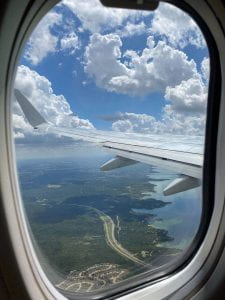
PREPARATION FOR DEPARTURE:
While rushing to finish packing the night before my flight, I attempted to wrap my head around a new realization: I would be apart from my family for the longest I have ever been. With everything that has happened this year, three months seems like an eon and simultaneously feels like a flash. Ready to see what lies ahead of me, I was eager to leave the next day.
In an attempt to more quickly adjust to the seven hour time difference, I tried to get as much sleep on the plane as I could. I arrived at 10am CEST (3am to my CST acclimated body) and felt relieved that I had finally made it to Paris. With the ongoing pandemic, I had to present 5 additional documents in addition to my passport when going through customs, a moment I had been anticipating to go wrong in some way. While packing, I was expecting to be back the very next day having run into some kind of issue: my airline wouldn’t accept my Covid test, I would miss my flight, the french government would bar students from travel, I wouldn’t have the correct documents on hand. To my surprise, everything went as planned. I didn’t expect to make it from ATL to CDG, let alone for it to be so seamless.
MY ARRIVAL IN PARIS:
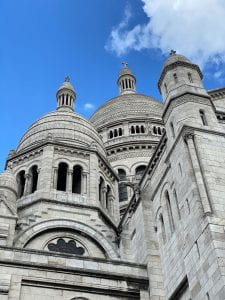
I planned on staying in Paris alone for a couple of days before journeying to Metz for the start of the semester, so I could acclimate to France on my own. I arrived feeling exhausted, somewhat detached from reality, and anxious. My knowledge of the French language, the maze like airport, and the country overall was limited. On the ride to my hotel, I made an effort to observe the differences between the US and France: the landscape, the people, how they drive, etc. I was confused (and slightly concerned) why my driver was going 100 miles an hour, despite our slow pace, when I remembered the speedometer is in kilometers. My general first observations on Parisian traffic? Cars are much smaller. Motorcyclists are more daring. Everyone stops for bikers and pedestrians.
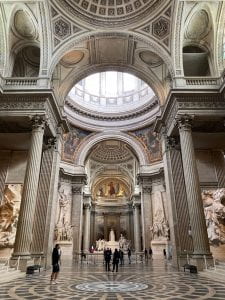 Though short, my stay in Paris was very meaningful. It was my first solo trip, my first interaction with Europe, and the last vacation before classes began (although definitely not my last of the semester). I stayed just a 10 minute walk from the Eiffel tower, so after a nap, shower, and quick lunch, I headed over to the famed landmark. Overall, my stay in Paris was amazing, but a bit lonely. I FaceTimed my family and boyfriend when I could to show them everything I was experiencing. My timidness, in addition to the language barrier, kept me from connecting with locals. I kept to myself and did my best to visit as many places as possible; my goal was to see as much as possible in the short time I had. However, I enjoyed that traveling alone gave me the freedom to choose what my day looked like. I could change my plans on a whim, make detours, enter a museum spontaneously without having to worry about what anyone else wanted to do. Everything I did was up to me.
Though short, my stay in Paris was very meaningful. It was my first solo trip, my first interaction with Europe, and the last vacation before classes began (although definitely not my last of the semester). I stayed just a 10 minute walk from the Eiffel tower, so after a nap, shower, and quick lunch, I headed over to the famed landmark. Overall, my stay in Paris was amazing, but a bit lonely. I FaceTimed my family and boyfriend when I could to show them everything I was experiencing. My timidness, in addition to the language barrier, kept me from connecting with locals. I kept to myself and did my best to visit as many places as possible; my goal was to see as much as possible in the short time I had. However, I enjoyed that traveling alone gave me the freedom to choose what my day looked like. I could change my plans on a whim, make detours, enter a museum spontaneously without having to worry about what anyone else wanted to do. Everything I did was up to me.
PLACES IN PARIS I VISITED AND RECOMMEND:
Eiffel Tower, Palais du Chaillot, Louvre, Sainte Chapelle, Notre Dame, Montmartre, La Basilique Sacré-Cœur, Pantheon, Luxembourg Garden, Les Invalides
MY ARRIVAL TO GEORGIA TECH-LORRAINE IN METZ:
With Covid-19, our arrival was slightly different from how a normal arrival might be for our safety. Our luggage was unloaded for us, we left the bus in groups of five, masks on all the time, hand sanitizer at every checkpoint, went straight to our rooms. It felt amazing to finally get to my dorm, unpack, and settle in. A large group of students went to Cora almost immediately. This first trip there was chaos. None of us spoke much French or had the data to translate it, the market is organized differently than ones back home, and not a single person knew what they needed to buy. Needless to say, we all returned multiple times the following days. They have countless options for every item you could ever want; I swear I saw 3 aisles with cheese!
I am extremely grateful to have the opportunity to study and travel at Georgia Tech-Lorraine. Almost everyday I have a moment where I go, “Oh wow, I’m in FRANCE!” I still cannot believe I am here. I am excited to see where the rest of the semester takes me. 
QUICK TIPS FOR A SUCCESSFUL MOVE TO GEORGIA TECH- LORRAINE:
Soak your shower head and sink faucet in white vinegar and water. Don’t bring electrical items besides your devices (I almost set my hotel on fire trying to use an American steamer). Get a bike in Metz through the rental service Georgia Tech-Lorraine has.

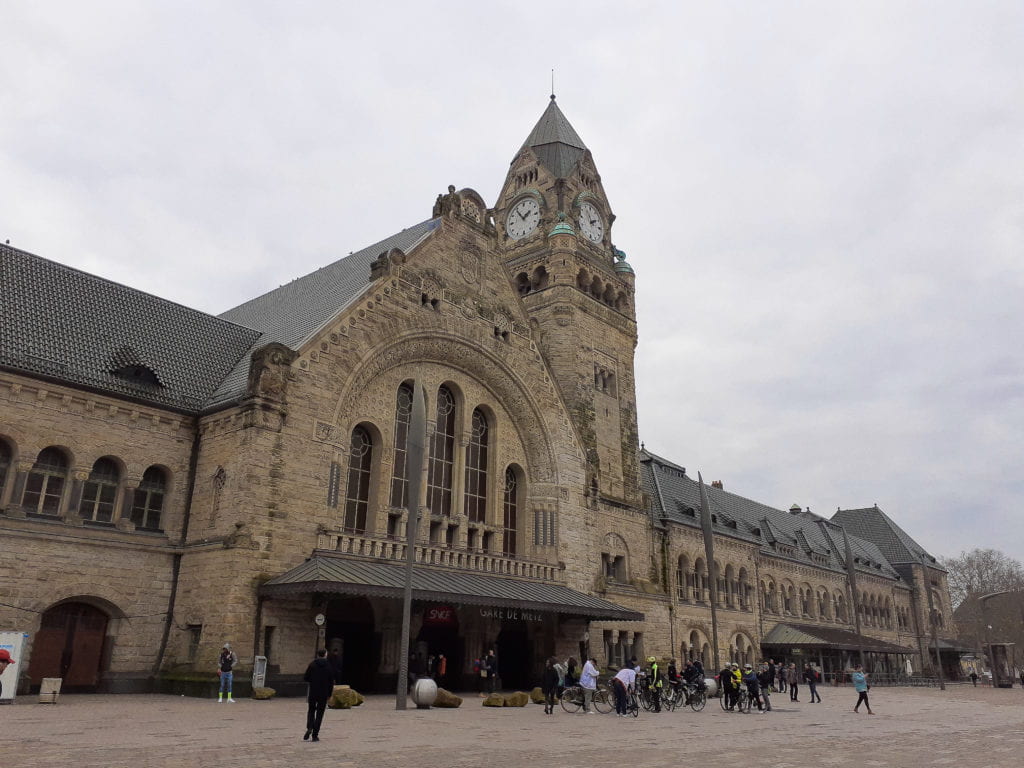
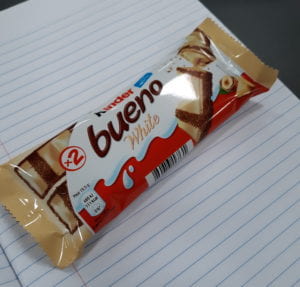
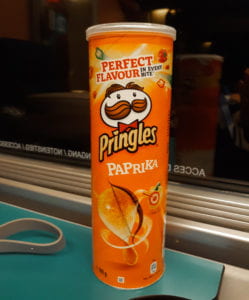
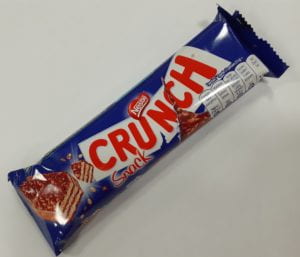
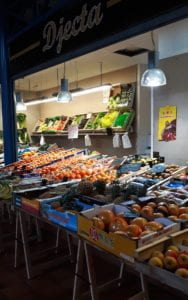
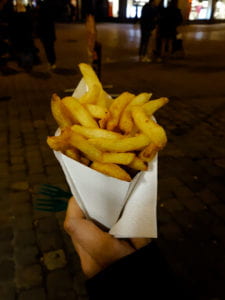
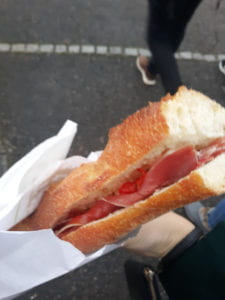

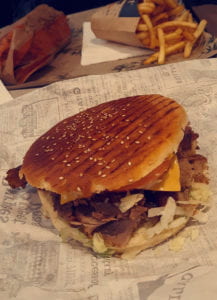
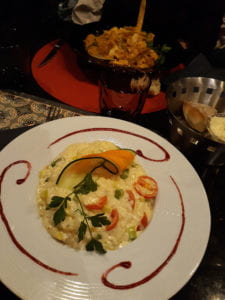
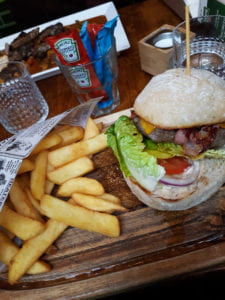
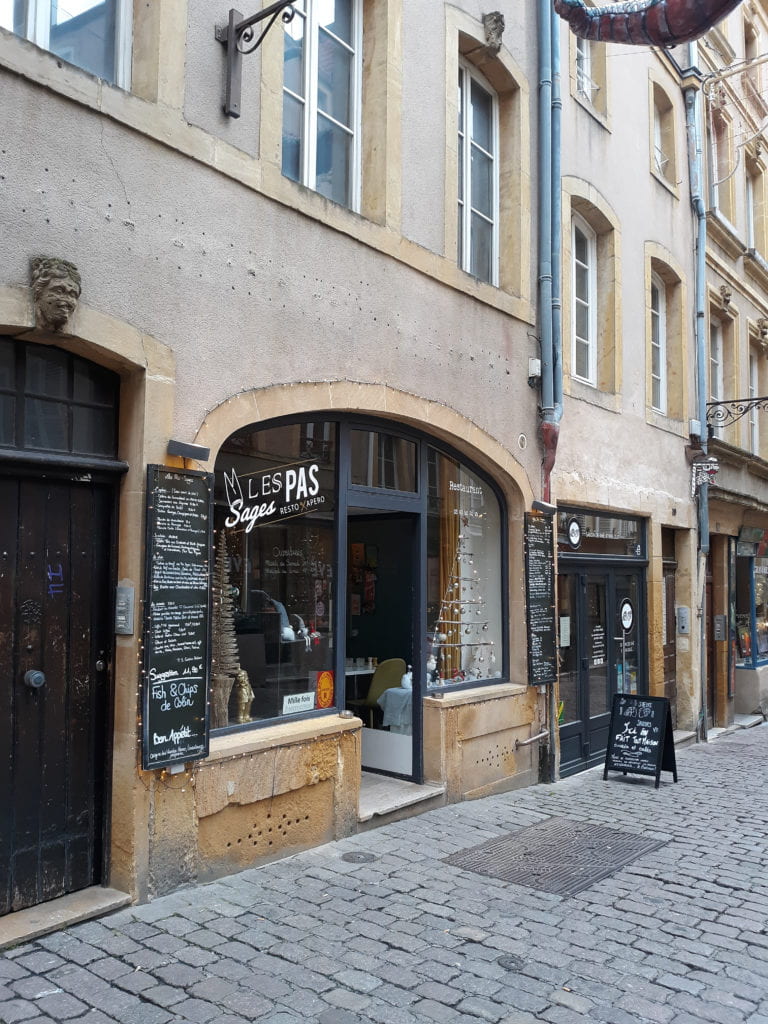


 in the world is in Spa, and the race happens to be at the beginning of the fall semester every year, so I wanted to go. My mom made it happen, and my dad got to come too, so that was an unforgettable experience. Lastly, Tromso—it was by far the most expensive trip that I planned, as well as the furthest distance from Metz (and therefore the most difficult to get to). After traveling for 20 hours, a couple of friends and I got to see the Northern Lights on both nights that we were there. They are absolutely stunning I could not recommend them enough if you have the ability to go see them.
in the world is in Spa, and the race happens to be at the beginning of the fall semester every year, so I wanted to go. My mom made it happen, and my dad got to come too, so that was an unforgettable experience. Lastly, Tromso—it was by far the most expensive trip that I planned, as well as the furthest distance from Metz (and therefore the most difficult to get to). After traveling for 20 hours, a couple of friends and I got to see the Northern Lights on both nights that we were there. They are absolutely stunning I could not recommend them enough if you have the ability to go see them. I would like to think that I did quite a few things well during this semester. I managed to travel tons – almost every weekend – and got to see many things that I never would have thought I’d be able to see. I was able to take 13 credit hours (I have been taking 14-16 every semester before this one) and still be able to do this traveling and be social. Another thing I did well was being social: I’m an introvert, and therefore being social is usually a problem, but I was able to be pretty social among the group of students at Georgia Tech-Lorraine. Lastly, I don’t think I got lost at all this semester—I had limited data and though a couple of wrong turns were taken, I always made it to the end destination relatively quickly.
I would like to think that I did quite a few things well during this semester. I managed to travel tons – almost every weekend – and got to see many things that I never would have thought I’d be able to see. I was able to take 13 credit hours (I have been taking 14-16 every semester before this one) and still be able to do this traveling and be social. Another thing I did well was being social: I’m an introvert, and therefore being social is usually a problem, but I was able to be pretty social among the group of students at Georgia Tech-Lorraine. Lastly, I don’t think I got lost at all this semester—I had limited data and though a couple of wrong turns were taken, I always made it to the end destination relatively quickly. with Verizon and had very limited data. Second, plan your trips decently in advance. There were multiple occasions where I had to make last second plans to go to a city that wasn’t my first choice because all of the trains were sold out to get there. Another reason to plan bigger trips in advance is that planes are cheaper when tickets are bought in advance. Third, talk to people outside of the group you’re with. I struggle with this because I’m such a shy person, but I heard some really cool stories from people who talked to locals. Lastly, do focus on school some on the weekends. While I did well enough, I rarely did anything school related on the weekends, and therefore caused a bit of unnecessary stress for during the week.
with Verizon and had very limited data. Second, plan your trips decently in advance. There were multiple occasions where I had to make last second plans to go to a city that wasn’t my first choice because all of the trains were sold out to get there. Another reason to plan bigger trips in advance is that planes are cheaper when tickets are bought in advance. Third, talk to people outside of the group you’re with. I struggle with this because I’m such a shy person, but I heard some really cool stories from people who talked to locals. Lastly, do focus on school some on the weekends. While I did well enough, I rarely did anything school related on the weekends, and therefore caused a bit of unnecessary stress for during the week. Region in Northern Italy on Tuesday. After that, we have one more class on the following Tuesday. In my circuits lab, I have my final exam on Wednesday. It’s worth 35% of my grade, so I need to do well on it. In thermodynamics, we have three more classes with three more evaluation periods and then a final exam slot, which is essentially three evaluation periods put together. I was hoping to not need to come to the final to get an A, but it’s looking more and more likely that I will need to go. In my probability and statistics class, we have a couple of classes left, one homework assignment, and then the final exam, which is also 35% of my grade, so it’s a similar scenario to circuits. In French, we have a couple of review classes and then a final exam.
Region in Northern Italy on Tuesday. After that, we have one more class on the following Tuesday. In my circuits lab, I have my final exam on Wednesday. It’s worth 35% of my grade, so I need to do well on it. In thermodynamics, we have three more classes with three more evaluation periods and then a final exam slot, which is essentially three evaluation periods put together. I was hoping to not need to come to the final to get an A, but it’s looking more and more likely that I will need to go. In my probability and statistics class, we have a couple of classes left, one homework assignment, and then the final exam, which is also 35% of my grade, so it’s a similar scenario to circuits. In French, we have a couple of review classes and then a final exam.  as them. Today, we did the Porsche and Mercedes-Benz museums and then tomorrow morning, we will do the Porsche factory.
as them. Today, we did the Porsche and Mercedes-Benz museums and then tomorrow morning, we will do the Porsche factory.

 are like miniature exams and need to be prepared for in a similar manner. Even so, I’ve been traveling (as evidenced by my travel-related posts). Here’s how I’ve managed to travel and try my best to keep up with school and the blog.
are like miniature exams and need to be prepared for in a similar manner. Even so, I’ve been traveling (as evidenced by my travel-related posts). Here’s how I’ve managed to travel and try my best to keep up with school and the blog.
